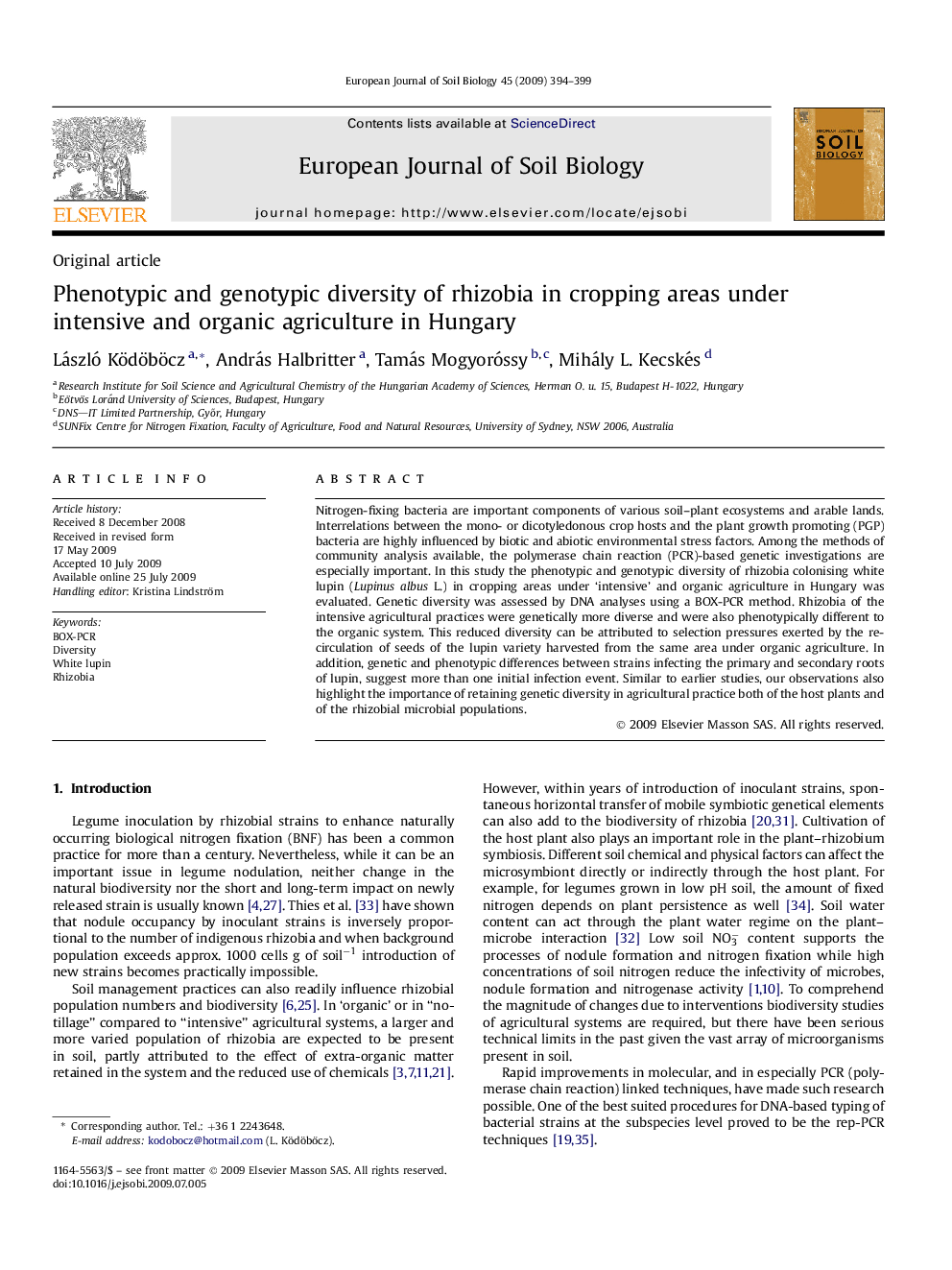| Article ID | Journal | Published Year | Pages | File Type |
|---|---|---|---|---|
| 4392172 | European Journal of Soil Biology | 2009 | 6 Pages |
Nitrogen-fixing bacteria are important components of various soil–plant ecosystems and arable lands. Interrelations between the mono- or dicotyledonous crop hosts and the plant growth promoting (PGP) bacteria are highly influenced by biotic and abiotic environmental stress factors. Among the methods of community analysis available, the polymerase chain reaction (PCR)-based genetic investigations are especially important. In this study the phenotypic and genotypic diversity of rhizobia colonising white lupin (Lupinus albus L.) in cropping areas under ‘intensive’ and organic agriculture in Hungary was evaluated. Genetic diversity was assessed by DNA analyses using a BOX-PCR method. Rhizobia of the intensive agricultural practices were genetically more diverse and were also phenotypically different to the organic system. This reduced diversity can be attributed to selection pressures exerted by the re-circulation of seeds of the lupin variety harvested from the same area under organic agriculture. In addition, genetic and phenotypic differences between strains infecting the primary and secondary roots of lupin, suggest more than one initial infection event. Similar to earlier studies, our observations also highlight the importance of retaining genetic diversity in agricultural practice both of the host plants and of the rhizobial microbial populations.
